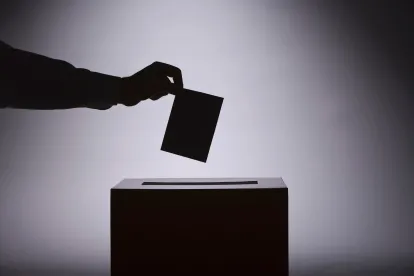A recent settlement between the Massachusetts Office of Campaign and Political Finance (OCPF) and Massachusetts Republican Party may highlight an emerging trend: state parties using federal preemption to avoid strict state campaign finance laws. At issue was whether the Massachusetts Republican Party could use funds from its federal campaign account to pay for staff and overhead expenses of Party employees who were working largely or exclusively on state races. Massachusetts law has tighter contribution limits than federal law, so for state races, federal funds include money that would be impermissible under state law. In the end, Massachusetts regulators acquiesced to the Party’s use of the less regulated federal funds, even when working overwhelmingly on state races. Only when party staff was working exclusively on state races did the OCPF and Party agree that state funds had to be used. This result is similar to an issue we have written about in Connecticut, where litigation is ongoing over a state party’s use of federal funds that did not comply with the state pay-to-play law, to fund activities that supported the governor’s reelection campaign, as well as federal candidates.
In Massachusetts, the state Republican Party used its federal account to pay staff salaries, office rent, health insurance, and payroll taxes for state campaign activities. In the Bipartisan Campaign Reform Act of 2002 (“BCRA” or “McCain-Feingold” as it was more commonly known), Congress distinguished between mandatory and permissive spending of federal dollars for staff and office space used for both state and federal campaign purposes. For staff who spend more than 25% of their time on federal campaign activities, salaries must be paid entirely out of a federal account. Thus, a state party employee who spends 70% of their time on state races must be paid with 100% federal funds, under federal law. Since at least 2008, OCPF guidance has recognized that where certain expenses are required by federal law to be paid from a federal account, those funds may be used to support state candidates. For other administrative expenses, including rent, utilities, and office equipment, federal regulations permit state parties to either (1) spend entirely from the federal account, or (2) allocate between state and federal accounts, with a minimum amount allocated to the federal account depending on which federal offices stand for election that cycle. As a result, state party committees can spend significantly less state funds on staff by sharing the cost with their federal account, which has a higher fundraising limit and can receive unlimited transfers from the national party.
Thus, while federal law requires the use of federal funds for federal election activities under certain circumstances, what is less clear is whether a permissive federal rule will trump a mandatory state rule: If state law requires certain expenses to be paid from state funds, but federal law allows those expenses to be paid from federal funds, who prevails?
Although it did not expressly find that state law is preempted—the decision came in the form of a settlement agreement, rather than an enforcement order—the agreement strongly suggests that OCPF believes federal regulations constrain its power to limit state parties’ use of federal dollars for expenses that federal law merelypermits to be paid from federal dollars. Federal rules allow parties to either pay 100% of these costs from a federal account, or to allocate (with at least 28% coming from federal funds in a presidential election year) expenses between the federal and state account, but do not mandate which option to adopt. The rules also allow, but do not require, parties to allocate salaries, as long as the staffers spend more than 75% of their time on state activities. Only when state party staff worked exclusively on state candidate activities did the OCPF and the party agree that non-federal funds had to be used.
The OCPF and state party were not explicit as to the reasoning why parties could operate under the federal rules in these permissive scenarios rather than having to allocate their expenses between their state and federal account in order to comply with the state law requiring state campaigns to use state funds. However, the OCPF’s 2008 decision can be read to support parties having this choice.
The settlement may also make it harder for Massachusetts to regulate party committees that opt into an all-federal spending model. This is because federal law permits a political committee that opts to pay salary expenses entirely from federal funds to not maintain a log of staff time spent on state versus federal activities. In the event that the amount of federal activity slips below 25%—meaning payment of salaries is merely permissive under federal law—or to zero—meaning that federal funds cannot be used for state activities—state regulators will have greater difficulty proving a violation when no time records exist. Indeed, the Mass GOP settlement itself reflects this phenomenon: because the party did not keep a log of staff time, OCPF could not determine whether certain party staffers were engaged in federal election activity and to what extent, and found they should have been paid from the state account.
In the wake of this decision, some voices in Massachusetts are calling for greater transparency. For example, a bill has been introduced that would require that allcontributions from political committees (including in-kind contributions from federal accounts) to state candidates come from state funds.
While the impact of this decision on OCPF’s regulation of the line between state and federal elections remains to be seen, this settlement and the ongoing litigation in Connecticut demonstrate that federal law can undercut the ability of states to police and disclose the influence of soft money in state elections. This trend only underscores the irony of McCain-Feingold: a federal law designed to limit the influence of soft money in federal elections is preventing states from enforcing regulatory regimes that would more robustly regulate political money.




 />i
/>i

